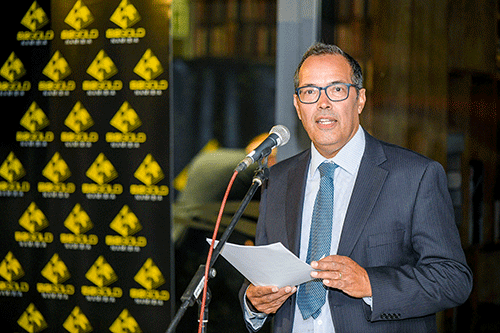Climate change is likely to have huge implications for Namibian society and its economy over the short, medium and long-term, an economist with the Institute for Public Policy Research (IPPR) Robin Sherbourne said.
He observed that the country will stand a better chance of tackling the challenges caused by climate change if it prepares for them, and enacts the right policies and actions at the right time.
“Looking at the impact on the Namibian economy, an examination of the sectors that make up the economy suggests that at least around 15.5% of the gross domestic product (GDP) is vulnerable to climate change,” said Sherbourne in a publication titled ‘Namibia’s Green Transition: A Summary of the Issues’, released last month.
These sectors include livestock and crop farming, forestry, fishing and fish processing, meat processing, grain milling, other food processing, and hotels and restaurants (and other tourism-related activities), but other water-intensive sectors such as mining are also highly likely to be affected.
The economist said it is not clear what the surviving sectors would look like nor what they would contribute to the GDP, only that they are highly likely to be smaller.
The damage inflicted on agriculture and other climate-vulnerable sectors would also hit poorer rural communities hardest, because they are most reliant on agriculture, forestry and tourism for their survival.
Furthermore, the damage inflicted on fisheries would hit urban communities in Walvis Bay and Lüderitz hardest, stated Sherbourne.
“Whilst Namibia is a carbon sink and makes only a negligible contribution to global Greenhouse Gas (GHG) emissions, its economy and population are extremely vulnerable to climate change. Climate adaptation rather than mitigation needs to take priority to protect such communities.”
Climate change represents a classic case of market failure, he noted, adding that without government intervention, profit-maximising private agents left to themselves will not take the external costs of climate change imposed by their actions into account because they do not face a price for the carbon emissions they generate.
Significant ‘externality’
Externalities occur in an economy when the production or consumption of a specific good or service impacts a third party which is not directly related to the production or consumption of that good or service.
“Given the nature of the challenge, economists generally recommend measures that involve incentivising economic agents to reduce environmentally-damaging behaviours. This might involve the introduction of carbon taxes or carbon trading mechanisms, which employ the price signals of the market to affect behaviour. This will have an impact on global prices and relative prices for virtually everything humans produce and consume. The role of industrial policies adopted by countries is also important,” the report noted.
Consequences for the public sector
According to Sherbourne, climate change will have significant implications for Namibia’s public sector.
“It is not known how much tax the agriculture, fishing and tourism sectors pay. But in general, Namibian government revenues appear relatively diversified and robust as far as climate change is concerned.”
He added that fuel taxes are low compared to many other countries, and there is no carbon tax. A number of modest environmental levies have been introduced, but primarily as revenue-raising measures.
“Namibia’s tax base appears relatively robust as far as climate change is concerned, but climate change will have consequences for public spending and the delivery of public services,” Sherbourne continued.
On consequences for public enterprises, he said for some public enterprises, climate change could be existential, while for others it will mean greater investment in new technology plus climate-proofing infrastructure.
The Paris Agreement of 2015 set out a global framework to limit the worst effects of climate change by limiting global warming to well below 2°C while pursuing efforts to limit it to 1.5°C.
Last month, President Hage Geingob explained at the occasion of the US-Africa Leaders’ Summit that the ambition of 1.5°C is urgent to avert a climate crisis, with devastating effects on shared humanity.
He said Africa emits less carbon dioxide into the atmosphere, but is regrettably disproportionately affected by climate change and the long-term shifts in temperatures and weather patterns. As a consequence, Namibia experienced severe droughts in the past five years.
“We are calling on developed countries to provide the means of implementation and support for the effective implementation and enhancement of nationally-determined contributions by developing countries,” said Geingob.
He urged developed nations to support the acceleration of climate technology transfer by creating access to information and knowledge on climate technologies, and fostering collaboration among climate technology stakeholders.
– mndjavera@nepc.com.na


